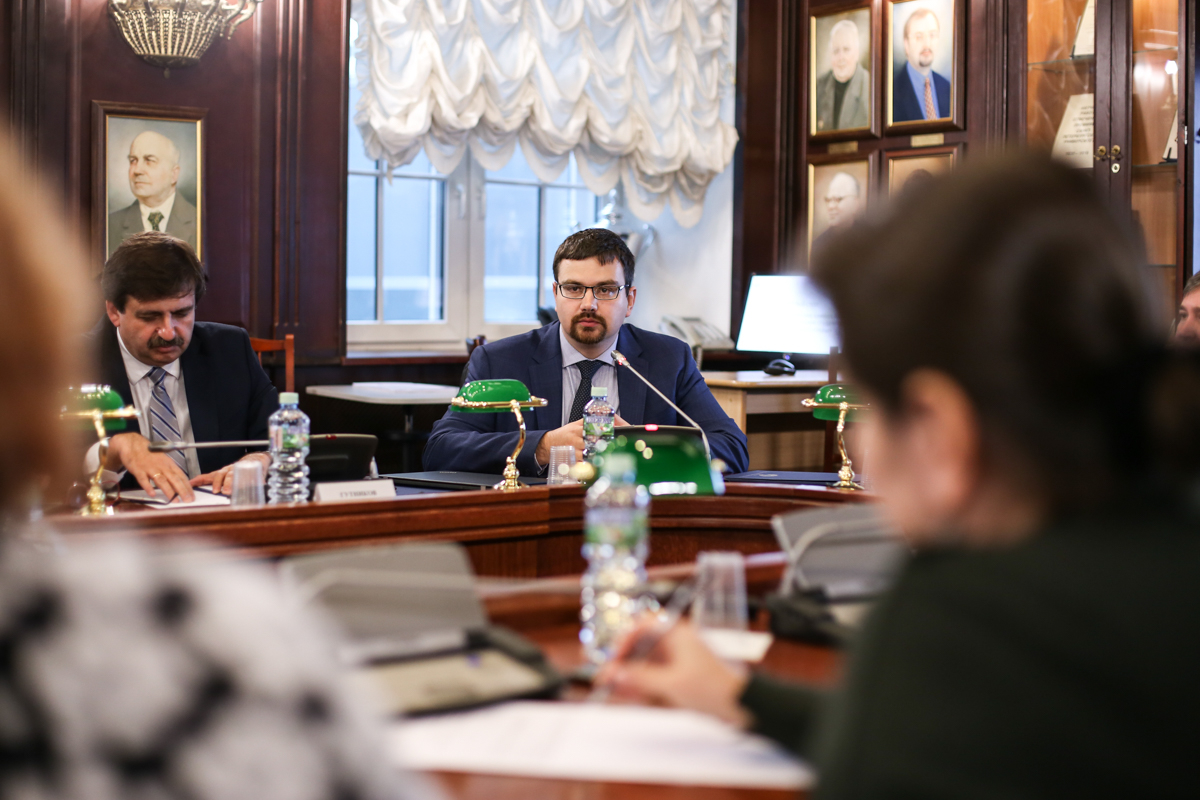‘I practice – and I master’: how clinical education is organised at St Petersburg University

The heads of the clinics of leading Russian universities discussed which methods are most effective in developing students' practical skills.
Clinical education has several missions. The priority one is to develop students’ practical skills and help them adapt to the real conditions of the future professional environment. A prospective employer hiring a university graduate considers that they are fully ready to perform their duties. The graduate will have handled not only academic tasks but also dealt with clients in person. Secondly, the clinics provide full-fledged free legal assistance to citizens who need it, and to those who sometimes cannot pay for high-cost services of lawyers. These are, for example, pensioners, orphans, parents with many children, and low-income citizens.
Associate Professor Viacheslav Nizamov, Director of the Legal Clinic of St Petersburg University, said that the Legal Clinic was the first to be opened at the University. It was created more than 20 years ago. Since then, more than 22,000 people have applied for legal assistance. Such practical activity is mandatory for every law student at St Petersburg University. The work of the clinic takes account of the educational process – classes take place during academic semesters. All students have an individual supervisor, and for each case a student is attached to the teacher who specialises in the required legal field.
The model of students supervised by their teachers solving certain legal problems of citizens has proved successful. The example of the lawyers has been followed, and clinical practices have been created in other areas of study. At present, St Petersburg University successfully runs: the Legal Clinic; the Psychological Clinic; the Social Clinic; the Sociological Clinic; the IT clinic; the Social Translation Centre; and the Mediation Centre.
In each of them, students develop their hard skills – the ability to work as required by established occupational standards. They also master their soft skills that make it possible for them to work successfully in a given, rapidly changing environment.
The best way to learn something is to try to do it yourself. The interest of a learner, a student should be directed to the content of this activity. If a student wants to do something, it is necessary to give them such an opportunity.
Maxim Dranzhevsky, Director of the Autonomous Non-Commercial Organisation 'Centre for the Development of Legal Clinics’, Head of the Legal Clinic of Lomonosov Moscow State University
The experts agreed that lectures and seminars are the basis for transferring knowledge from a teacher to a student. But at the same time, higher education inevitably comes to the understanding that future skilled workers cannot be trained if they do not leave their desks and enter real life. Maxim Dranzhevsky noted that ‘During clinical training, the student is in an uncomfortable situation, and this is, of course, their first professional challenge.’
Maiia Rusakova, Director of the Sociological Clinic of St Petersburg University, said that over the 18 months that the clinic has been conducting its activities, both teachers and students have noted its positive effects. Students, plunging into certain practical tasks, improve their verbal and written communication skills. They also begin to pay more attention to theory and as a result begin to study scientific literature more profoundly; and they ask more questions during theoretical courses. ‘Students are beginning to understand why all this is necessary,’ emphasised Maiia Rusakova.
Lawyers have noticed that for a long time such ideas have not been considered innovative. They appeared more than 100 years ago, and acquired the mode of an ‘activity approach’ in education. Back in 1926, Lev Vygotsky in his book Educational Psychology wrote that the most interesting thing in the educational process is uncertainty. According to the participants of the roundtable discussion, legal work has always been and will always be connected with variability, and a clear instruction or a certain algorithm is ineffective in this sphere.
In the clinic, the student is trained to acquire such a skill – to solve variable situations and work in risky conditions. At universities where clinical education is developed, students are no longer divided into theorists and practitioners as modern educational standards require a combination of both.

